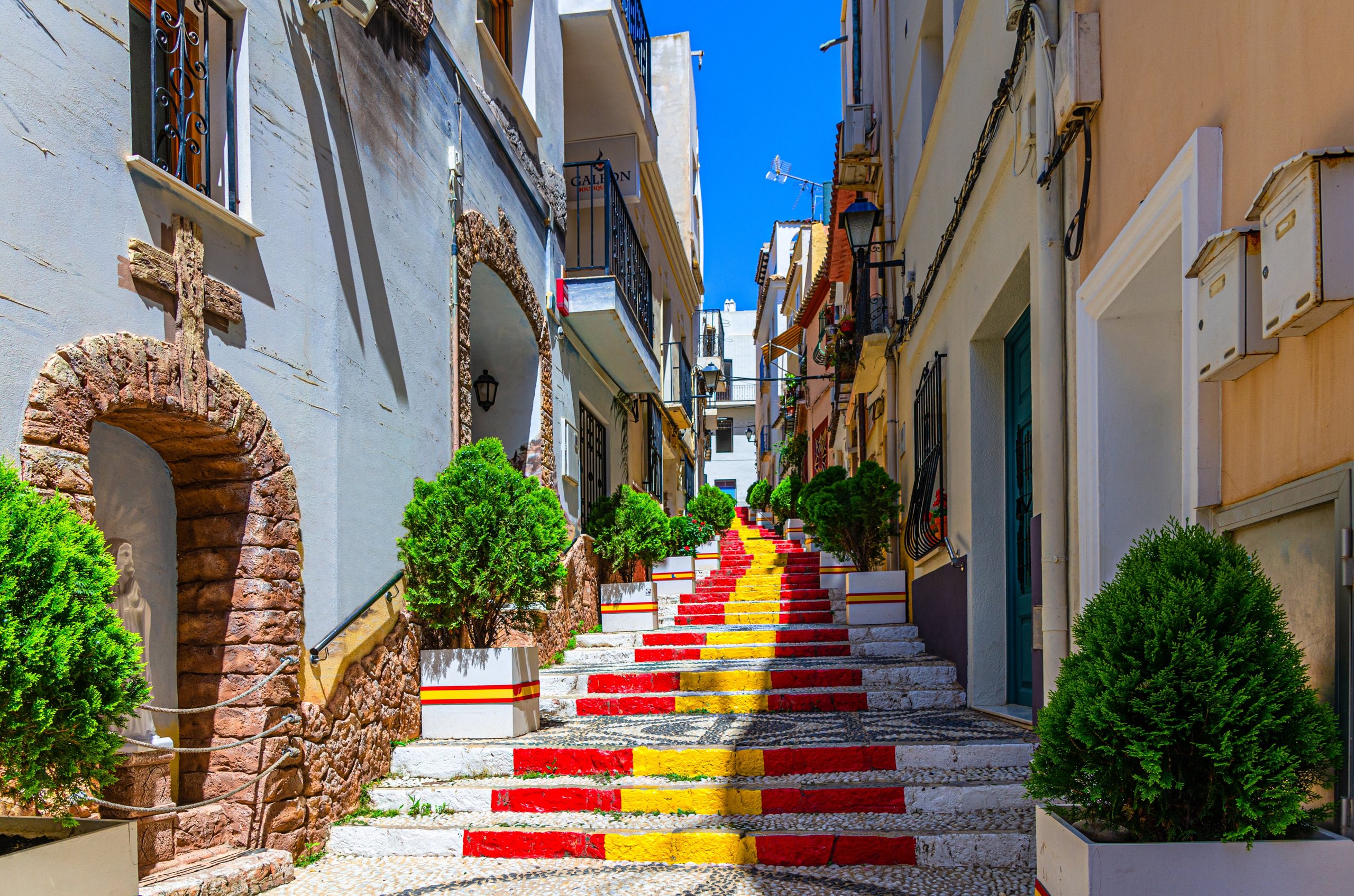It’s no secret that property prices in Spain are more affordable than they are in places like the UK and the US. But the true cost of buying goes beyond the asking price. Here’s what you need to budget for to avoid costly surprises…
Buying a home in Spain is still one of the most appealing moves you can make – better weather, a slower pace of life and property prices that often stretch further than they do in the UK or the US. But before you start picturing yourself on that sunny terrace, it’s essential to get a clear view of the full costs involved.
From taxes and legal fees to mortgage costs, currency transfers and utilities, there’s more to budget for than just the purchase price. Some costs are fixed, others vary by region and a few can be reduced with the right planning. Knowing what to expect upfront puts you in a far stronger position when it comes to making offers and avoiding surprises later.
In this guide, we give you a realistic breakdown of what you can expect to pay, explain how costs can vary depending on location and property type and show you how careful decisions can save you thousands.
Download the Spain Buying Guide
Contents
Spanish property purchase costs
As a general rule, budget an extra 10-15% on top of the property’s price. These additional costs include various taxes, professional fees and administrative charges. Some are fixed or regulated, while others can vary based on region or your negotiation skills.
| Cost type | Typical amount | Who pays? |
|---|---|---|
| Transfer tax (ITP) or VAT (IVA) | 6-10% of the purchase price | Buyer |
| Stamp duty (AJD) | 0.75-1.5% | Buyer |
| Legal fees | 1-2% | Buyer |
| Notary and registry fees | €600-€1,200 | Buyer |
| Estate agent fees | 3-5% (usually included in sale price) | Seller (sometimes split) |
As a general rule, budget an extra 10-15% on top of the property’s price
Transfer tax (ITP)
If you’re buying a resale home, you’ll pay ITP. This ranges from 6% to 10% depending on the region. For example, in Valencia (which covers the Costa Blanca) it’s 10%, while the Canary Islands offer a more favourable rate at 6.5%.
VAT (IVA)
For new build homes, IVA of 10% replaces ITP. It applies to off-plan or newly completed properties purchased directly from developers.
Stamp duty (AJD)
This is a separate tax for notarising the property deed. It ranges from 0.75% in the Canary Islands to 1.5% in Valencia.
Notary and legal fees
Notary fees are regulated and linked to the property’s value. Legal fees are around 1 to 2%, but it’s worth hiring a bilingual, independent solicitor for a smooth process.
Estate agent fees
These are typically included in the sale price and paid by the seller, although in some cases they may be shared.
Property valuation and surveys
If you’re applying for a mortgage, a valuation by a lender-approved appraiser is compulsory. This usually costs between €200 and €600. Even if you’re buying outright, it’s still a good idea to get a valuation to ensure the asking price is realistic.
Additionally, you may choose to commission a private survey to check for structural issues or renovation needs. In older homes or rural fincas, this can be an excellent investment and often provides valuable leverage for negotiating the price.
Remember, surveys are optional in Spain, unlike in the UK, but they can prevent costly surprises.

Currency risk and transfer fees
One of the most overlooked buying costs is currency transfer. Exchange rate movements between agreeing a price and completing can change the amount you pay in your home currency – sometimes dramatically.
For example, a €250,000 property could cost £10,000 more or less depending on when you exchange. That’s why many buyers use a forward contract from a currency specialist like Smart Currency Exchange. It locks in your rate for up to 12 months, protecting your budget.
Using a dedicated currency provider can also reduce your transaction costs, offering better rates than banks and typically zero transfer fees. This is especially important for large sums, such as your deposit and final balance.
Bank charges and mortgage-related fees
If you’re financing your home with a Spanish mortgage, it’s important to understand which costs you’ll pay – and which are now covered by the lender.
Since the introduction of Spain’s Mortgage Credit Law, most traditional bank fees associated with setting up a mortgage are paid by the lender, not the buyer. This has made the process more transparent and reduced upfront costs for purchasers.
As a buyer, you should typically budget for:
- Bank valuation fee: usually between €200 and €600. This is mandatory for mortgage applications and must be carried out by a lender-approved valuer.
- Mortgage-related administration: minor costs may apply for document handling, translations or additional paperwork, depending on the bank and your circumstances.
- Insurance products: lenders may require buildings insurance and sometimes life insurance. While these are often offered by the bank, you are free to source them independently in most cases.
Mortgage arrangement fees and opening commissions are now usually paid by the bank, although terms can vary between lenders, so it’s essential to review your mortgage offer carefully.
Spanish banks are required to disclose all mortgage costs and conditions clearly and in advance, allowing you to compare offers and understand the true cost of borrowing before you commit.
Utilities and service connections
At completion, you’ll need to register or transfer water, electricity and possibly gas contracts into your name. If services are already active, this is a simple administrative process. If not, connection fees will apply and vary by supplier and region.
Some buyers also install broadband, air conditioning or security systems after purchase, so be sure to budget for those as post-sale expenses.
Shopping around for electricity and internet providers can lead to long-term savings – many areas now offer fibre-optic internet (ideal if you’re working remotely or managing the property from abroad).
How to reduce the overall cost of buying
There’s no avoiding taxes or legal fees, but there are ways to bring down your total spend:
- Choose a lower-tax region: for example, the Canary Islands’ ITP is 3.5% cheaper than in Valencia or the Balearics.
- Negotiate the purchase price: most Spanish sellers expect offers below asking price – especially if the property has been on the market for a while.
- Fix your exchange rate: protect your budget with a forward contract early in the buying process.
- Get a good lawyer: paying a little more for excellent legal advice can save you thousands in future issues.
- Buy wisely: some resale homes come fully furnished or with lower community fees than newer developments – ask your agent to highlight these options.
Also consider running costs post-purchase – such as IBI property tax, rubbish collection fees and community charges – which vary significantly by location and property type.
Final thoughts
Buying property in Spain doesn’t have to come with budget shocks. With expert guidance and a solid understanding of the buying costs, you’ll be in a great position to make confident decisions and avoid unnecessary surprises. Knowledge truly is power – especially when it comes to realising your overseas dream safely and affordably.
Search homes for sale in Spain
FAQs about property buying costs in Spain
When buying a property in Spain, you should budget for costs beyond the purchase price. These typically include property tax (either transfer tax for resales or VAT for new builds), stamp duty on new properties, notary and land registry fees and legal fees. If you’re taking out a mortgage, you’ll also need to pay for a bank valuation. In most cases, total buying costs come to around 10–15% of the property price, depending on the region and whether the home is new or resale.
The amount of tax you pay depends on the type of property and where it is located. For resale homes, buyers pay Property Transfer Tax (ITP), which usually ranges from 6% to 10%, depending on the region. For new build properties, buyers pay 10% VAT (IVA) plus stamp duty, which typically ranges from 0.75% to 1.5%. These taxes are paid by the buyer at completion and must be factored into your overall budget.
Buying a property in Spain does not automatically give you the right to live there permanently. If you are an EU citizen, you can live in Spain long term by registering as a resident. If you are a non-EU citizen, such as a UK buyer, you will need a suitable visa, such as a non-lucrative visa, digital nomad visa or work-related visa, depending on your circumstances. Property ownership can support a residency application, but it is not, by itself, a route to permanent residence.
You might also like:
- How to save money when buying property in Spain
- How to find affordable property in Spain
- Buying a property in Spain: your complete six-month plan









